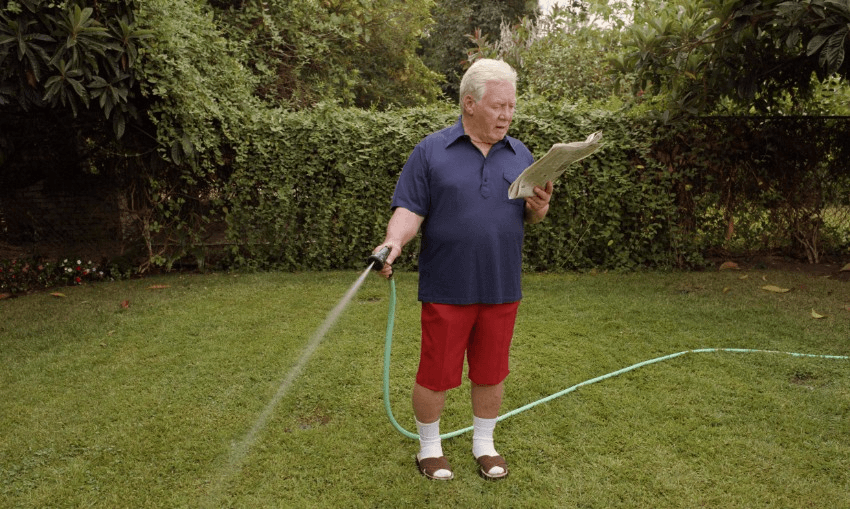As Aucklanders reluctantly adjust to the inconvenient practice of water conservation, a drought-savvy Northlander shares the tips and temperament needed to get through the dry times.
Auckland’s water shortage was recently reported on The Project, and viewers were earnestly exhorted to fill their dishwashers completely before turning them on. My husband and I looked at each other in amazement.
“Dishwashers? Why are they using dishwashers when there’s a drought?” he asked.
Our dishwasher was laid off on September 17, 2019 when our regular water-level check found that our tanks were on the way to running dry before summer’s end. It returned to service on May 14, 2020. During the drought we washed the dishes once a day in a bucket in the sink. The bucket was then emptied onto the garden, which returned the favour by continuing to produce throughout the drought. This might seem a dangerously unsterile way of doing things, but no one got sick. It is how our great-grandmothers washed their dishes.
We are a household of three adults living in Northland which, thankfully, is now coming out of a period of drought. Our water tanks have a total storage capacity of 30,000 litres captured from our roof, which is small when compared with many homes. Our permanent water-use mode would probably be defined as “restricted”, but to us it’s normal. It is not a hardship.
Visiting Auckland, we were almost blinded by the glare reflected from shining lines of traffic moving slowly under the sunny sky. Not one car wore the badge of drought-stricken honour – dust. Even though there are no loose metal roads in the city, particles of dust created by, for example, construction and road repairs float in the air. They either manage to avoid landing on cars altogether or they do land but are washed off with water scooped from the falling levels of the cracked-earth dams. A car is allowed to be dusty during a drought. Exterior dust does not affect the engine’s performance.
A news clip about Auckland’s water shortage showed a camera shot of someone watering a garden – admittedly with a hand-held hose rather than a sprinkler, but still! Auckland, you are experiencing drought. Gardens can be watered with the grey water saved from the washing or dishes. Hoses should be coiled on their reels, their taps stiff with disuse, the whole unit covered in healthy spider webs by now.
In a severe drought, an adult body can be washed in three minutes. This is not the time for long-hot-shower therapy, which will be appreciated so much more when the drought is over. Now is the time for very short showers. It’s the time for turning the water off if you are shaving your legs and also between rinses of your brush while doing your teeth.
Your towel is damp but not dirty when you dry yourself with it after a shower. It is not dirty because your body was clean before the towel dried it. The towel does not need to be washed. It needs to be air-dried then used again… and again. Only after a few more showers can the towel be put into the washing machine.
Washing machines provide a whole new level of opportunities to save water. They should be full before turning them on, which might mean that towels have to mingle with underwear. This is not a sin during times of drought. It is commonsense. Most washing machines (and dishwashers) have a water-saving eco-cycle. Unless clothes are covered in mud, of which there is not much chance during a drought, the eco-cycle is sufficient to ensure that they will leave the machine clean.
The climate is changing and we will be affected in ways that we don’t yet fully realise. Water shortages could become a common feature of life for more of us, so maybe we should use this drought as an opportunity to learn to live with them. The thought of inter-area water wars is simply too horrifying to contemplate.
